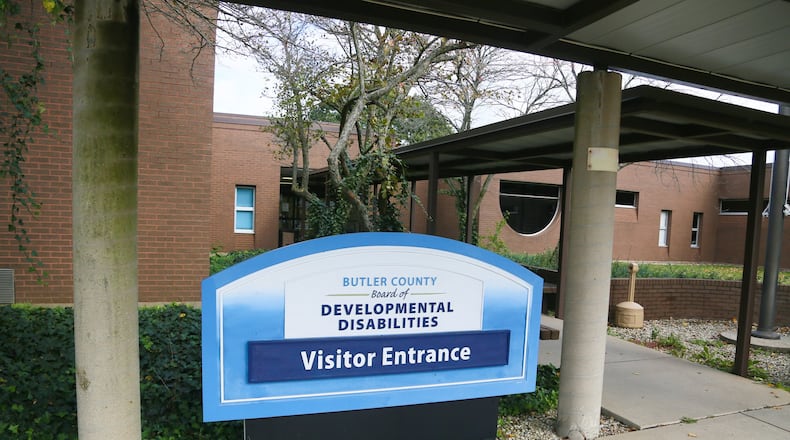“Our agency has grown substantially in the number of people with developmental disabilities for whom we coordinate and provide services,” she said. “Those services are our utmost priority. At the same time, we recognize the importance of keeping a balanced budget while striving to be good stewards of tax dollars.”
The board doesn’t provide direct services to its 3,700 clients, instead contracting out the support.
Guliano said officials knew their projected cash carryover for next year was high when they submitted their proposed budget to the county commissioners earlier this year. When County Auditor Roger Reynolds broached the subject, they agreed to make the voluntary adjustment.
With revised tax collections for next year the board plans to spend $26.7 million and collect $21.9 million in revenues leaving a cash balance of $33.6 million, down almost $5 million from the initial projection of $38 million. The board is projecting revenue losses from other funds as well.
The half-mill reduction comes out of the 2.0-mill continuous levy voters approved 20 years ago that previously collected almost $14 million annually. The board passed a second 1.0-mill continuous levy in 2004, and it garners $7.7 million. The board also receives state and federal funding.
Thursday was Board President Tony Yocco’s last meeting after a dozen years of service.
“The icing on the cake now, if you could have a silver lining to COVID, one of the silver linings I think is it has forced us to get out of our comfort zone and look at how to get things done in more effective, more efficient, less physically present in our ways,” Yocco said. “And that’s led to some cost savings that we we’re now going to be able to pass onto the taxpayers.”
Guliano said the board in 2015 had 196 full-time equivalent staffers, and it budgeted for 149.5 people this year. An additional 10 positions have been eliminated for next year, mostly through attrition because of the pandemic. Many positions were lost when its adult day care center closed in 2017, after the Centers for Medicare and Medicaid ruled DD boards could no longer provide direct services after 2024.
The board also consolidated its employees from five office locations to two in 2017.
Reynolds said the Butler County Budget Commission, comprised of himself, Treasurer Nancy Nix and Prosecutor Mike Gmoser, examines levies across the board every year and the DD Board’s carryover did seem excessive. Had the board not taken action the budget commission could have.
“There’s no reason to carry a year-and-a-half worth of cash if there is not a risk of the levy not continuing,” Reynolds said. “Some of these levies and the DD situation, those are continuous levies.”
Reynolds said the fiscally responsible rule of thumb is to have a cash balance between 50% and 60%.
“As an example, if I’m collecting roughly $20 million a year and I’m spending $17 million a year, so I’m spending less than I’m bringing in, I think it’s reasonable for them to have a balance somewhere around $10 million,” Reynolds said. “But not $25 or $30 million. And you have to look at if it’s a continuous levy, they are going to continue to get that stream of cash continuously.”
Guliano said her board’s policy is to maintain a six-month reserve, to cover expenses since they typically don’t receive their first property tax installment until the spring. She said they plan to revisit their reserve balances annually with Reynolds to determine if they can continue to leave some of the agency’s money in taxpayers’ pockets.
As expenses continue to rise the board is anticipating the cash balance will dwindle to $4 million by 2027.
The only other time officials can remember county taxing bodies rolling back their millage was in 2008 when the county commissioners reduced the Elderly Services levy from 2-mills to 1.3-mills.
About the Author

